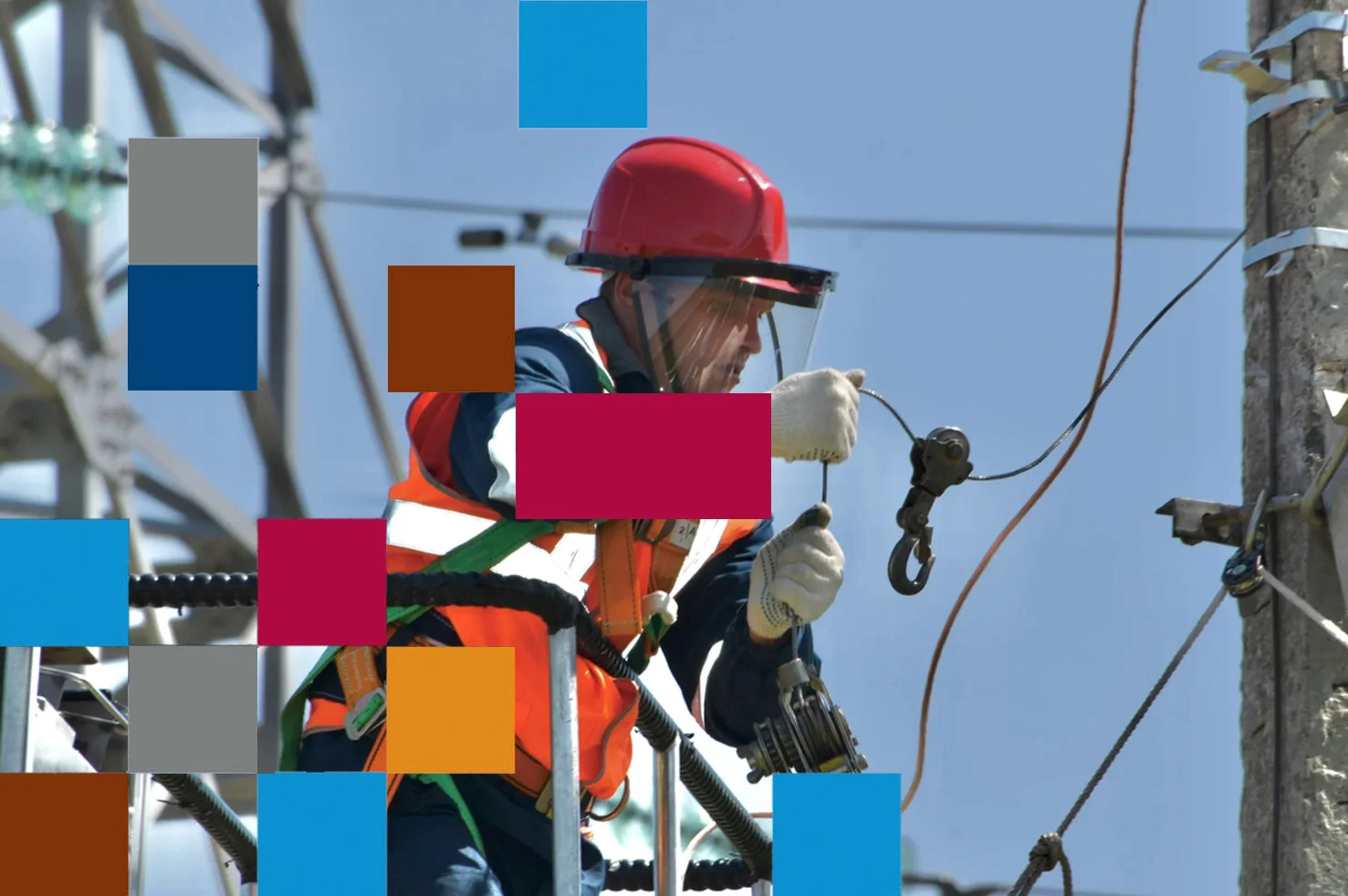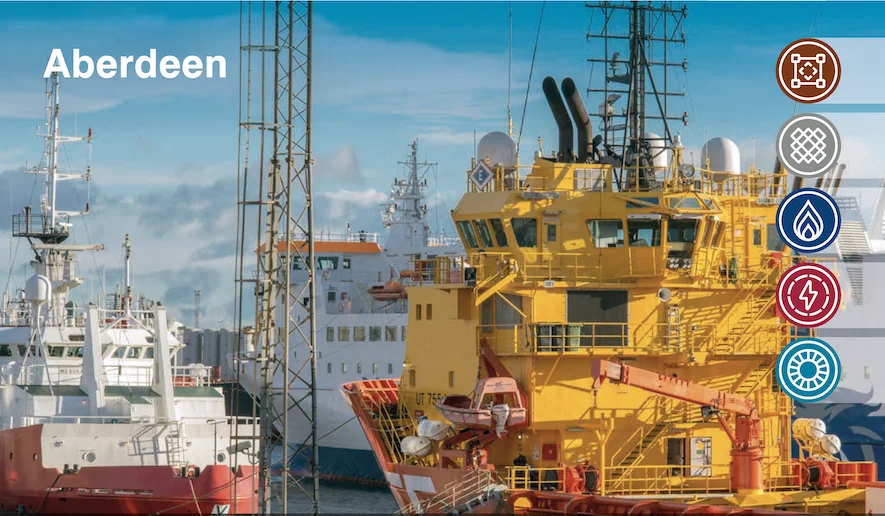The Aging Workforce in Oil & Gas: How Can Recruitment Adapt?
06 May, 20258 Minutes
The Reality of an Aging Workforce
There’s growing concern across all industries about a widening skills gap, which can lead to higher turnover, rising recruitment and training costs, and the steady loss of institutional knowledge. In the oil and gas sector, this challenge is even more complex. Alongside the skills shortage, the industry is grappling with a long-standing and accelerating age gap.
The average age of workers in oil and gas is 56, and over half of experienced engineering professionals are expected to retire within the next ten years [1]. This shift is leaving oil and gas recruitment teams under increasing pressure as critical roles disappear without a strong pipeline of talent ready to step in.
The roles most affected span several key areas:
- Technical and engineering – such as senior field engineers and operations specialists
- Leadership and project delivery – including Project Managers and Senior Managers
- Specialist disciplines – like Geologists and Drilling Engineers
- Skilled trades – including electricians, welders, and mechanics
These jobs demand more than just qualifications. They require sector-specific experience, problem-solving ability, and deep knowledge built up over time. That experience can’t be fast-tracked or replaced overnight.
The impact runs deeper than headcount. As seasoned professionals retire, companies risk losing critical insight and hands-on expertise developed through decades of practical work. These are the workers who have solved complex challenges on offshore platforms and remote sites, where swift decision-making and technical expertise are crucial for safe and efficient operations.
Maintaining operational continuity isn’t just a case of hiring replacements. Businesses need to consider how they will retain knowledge, transfer it effectively, and rebuild a skilled workforce that is prepared for the future.
What’s Driving the Aging Workforce Crisis?
The ageing workforce is already making recruitment harder across oil and gas engineering jobs. As experienced workers retire, businesses are under pressure to maintain safe, efficient operations while rebuilding a more balanced workforce.
The talent pool is shrinking
Only 12% of the oil and gas workforce is under 30, while 45% is over 50, and nearly 50% is expected to retire within the next decade [2]. That leaves a limited number of experienced professionals available to fill mid-level roles. The shortage is especially noticeable in the 35- to 50-year-old age group, where companies typically find workers with a decade or more of field experience.
Competition is increasing
As the number of qualified candidates falls, demand rises. Skilled engineers, offshore technicians and operational leads are being approached by multiple recruiters at once. This drives up salaries and extends hiring timelines, making it harder for internal teams and oil and gas recruitment agencies to secure talent quickly.
Knowledge gaps are growing
Younger professionals entering the sector are often highly educated but lack hands-on experience. Without enough mid-level workers in place to mentor them, companies risk losing knowledge that keeps operations safe and productive. Health and safety outcomes, technical performance, and project delivery timelines can all suffer when teams are forced to rely on underdeveloped talent.
Recruiters are taking more risks
With experienced talent harder to find, many companies are hiring less experienced candidates and investing in longer-term training. This can work, but it places added pressure on internal teams to develop clear training programmes, manage expectations, and keep projects running during that learning curve.
Recruitment strategies need to change
Oil and gas recruitment is no longer just about sourcing experienced hires. Companies need forward-looking strategies that combine immediate hiring with workforce development. That means thinking beyond job boards -using offshore recruitment networks, engaging younger candidates, and focusing on long-term retention, not just short-term hiring.

How This Workforce Shift is Impacting Oil and Gas Recruitment
A strategic approach is needed to bring younger professionals into the workforce, but in the meantime, oil and gas recruitment faces growing challenges.
As experienced offshore workers and engineers approach retirement, the available talent pool is shrinking. Those who remain are in high demand, which means:
- Recruiters face more competition to secure skilled professionals
- Hiring costs are rising, with longer lead times for every role
- Internal teams are under pressure to find the right fit quickly
There’s also a clear experience gap. Fewer workers are coming through with ten or more years of industry experience, particularly in the mid-tier 35 to 50 range. This means:
- Wages are increasing across oil and gas engineering jobs
- Companies are more reliant on early-career hires with limited experience
- Recruiters often need to invest more in training and development
The impact of retirement goes beyond hiring numbers. Without proper knowledge transfer in place, operations are more exposed to risk. When offshore experts leave the workforce, businesses risk losing:
- Hands-on technical knowledge
- Health and safety standards shaped by experience
- Project continuity and operational efficiency
For oil and gas recruiters, this shift demands a rethink of traditional strategies. It's not just about replacing leavers with new starters. It requires a long-term talent strategy that focuses on:
- Improving retention by investing in career progression
- Attracting younger and more diverse candidates through modern channels
- Promoting flexible benefits, work-life balance, and new technologies
- Partnering with offshore recruitment experts who understand the challenges and opportunities in this space
The pressure is now on recruitment teams to move fast, adapt, and plan ahead. Without the right strategy in place, companies risk falling behind as the workforce continues to evolve.
What Can Oil & Gas Companies Do to Secure the Next Generation of Talent?
This section should focus on solutions, not just hiring more people but adapting recruitment strategies to build a long-term talent pipeline.
The pressure to innovate shouldn’t sit only with recruitment teams. It needs to be embedded into a wider, long-term strategy that attracts new talent while retaining the critical knowledge of the soon-to-retire workforce. Below are several actions companies can take to ensure a smooth transition driven by smart oil and gas recruitment.
Talent planning
Instead of panic-reacting to sudden retirements, companies and recruitment teams need a strategic workforce plan that supports wider business goals. This should identify:
- Who will retire and when
- Which roles will be lost
- Which operational areas will be affected
- What new roles will need to be created
Part of the plan could include using soon-to-retire professionals as mentors or trainers to transfer knowledge to newer candidates, making sure expertise is not lost.
Expanding apprenticeship and graduate programs
Oil and gas companies need to actively develop entry-level talent, rather than relying on hiring experienced workers from competitors. This can start by targeting and encouraging younger candidates into oil and gas engineering jobs by focusing on positives such as:
- Career development opportunities
- Work-life balance
- Green and sustainability initiatives
Workforce transition planning
Attracting younger professionals also means addressing concerns about the industry’s future. Oil and gas companies can create flexible career paths that allow employees to:
- Begin in traditional oil and gas roles
- Transition into renewable or clean energy areas
- Align their career goals with business transformation strategies
This helps oil and gas recruitment efforts appeal to workers motivated by long-term sustainability and professional growth.
Mentorship and knowledge transfer programs
Pairing senior professionals with early-career employees helps preserve technical knowledge. These programs:
- Support efficient operations
- Equip new hires with practical skills
- Ensure that essential knowledge is passed down effectively
Attracting candidates from parallel industries
Rather than losing skilled professionals to other sectors, oil and gas companies should compete directly by targeting those in:
- Manufacturing
- Infrastructure
- Heavy engineering
These professionals often have transferable skills that require minimal upskilling to move into offshore recruitment roles.
Work with specialist recruitment agencies
Partnering with oil and gas recruitment agencies helps companies move beyond reactive hiring. These agencies:
- Offer access to wider talent networks
- Provide sector-specific knowledge
- Deliver candidates faster and more accurately than generalist recruiters
This approach helps ensure long-term success in a tight recruitment market.
Modernising work practices and technology
Companies are updating their working methods to meet the expectations of a younger workforce. By embracing change, they can:
- Introduce more flexible working arrangements
- Attract tech-savvy workers
- Apply new technologies that improve operational efficiency
These updates also make it easier for younger professionals to apply their training and education directly in the field.
Why Urgent Oil and Gas Recruitment Strategies Are Now Essential
Despite progress in some areas, the oil and gas industry continues to face major workforce challenges. Only 10% of organisations have formal plans for retaining older employees, and just 5% have strategies in place to recruit them. At the same time, 42% of workers who left energy and materials companies since 2016 have moved into other sectors [2].
If this trend continues, the shrinking workforce will become harder to sustain. Operations may be paused or cancelled altogether due to skills shortages, safety concerns, or resourcing delays. This is no longer an issue for recruiters alone - it affects business continuity, performance, and long-term growth.
Without a clear oil and gas recruitment strategy, companies will face higher costs, longer hiring timelines, and increasing difficulty in filling essential roles. Acting now is the only way to protect operations and build a workforce that is equipped for the future.
Work with the Oil and Gas Recruitment Experts
This should be a direct invitation for companies to work with Orion on solving their recruitment challenges.
Don’t let a retiring workforce and a skills shortage hamper your operation. Orion has deep expertise in oil and gas recruitment, helping companies find skilled engineers, technicians, and offshore professionals. With a global network of offices and oil and gas recruitment experts around the world, Orion should be the answer to your recruitment problems.
Speak to Orion’s oil and gas recruitment specialists today to future-proof your workforce and secure the expertise you need for the years ahead.
References:
[2] https://www.shrm.org/content/dam/en/shrm/foundation/Oil%20Gas%20Mining.pdf



